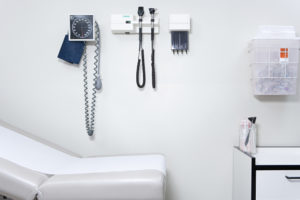
COVID-19 has brought many challenges to the legal industry in 2020 and has sparked debate about the importance, value, and necessity of the bar exam. Normally, this year’s graduates would have taken the exam in July, but the risks to public health have led to an open-ended delay in many states. These delays have caused issues and negative implications for students waiting to start their career, while also potentially hindering the legal needs of the public. A discussion of solutions has resulted in differing opinions about the bar exam and its requirement to become a licensed attorney. Most notably, whether eliminating the bar exam temporarily or permanently would lead to an increase in malpractice claims.
Legal malpractice is when an attorney doesn’t meet what’s considered the “standard of care” that another attorney would provide in the same or similar circumstances. In a malpractice claim, you must be able to prove that there would have been a different outcome in your case if not for your attorney’s error or intentional wrongful conduct.
Pros and Cons To Eliminating The Bar Exam
Many believe the bar exam is necessary, including the National Conference of Bar Examiners, which released a white paper that reviewed options for bar admissions during COVID-19. Their position is that the exam adds a safeguard and ensures a certain level of competence among lawyers. Without the exam, it’s argued there could be a greater risk of malpractice claims because new lawyers would not be held to the same standards.
But advocates who wish to eliminate the exam, or at least allow this year’s graduates into the bar without taking the test, argue there are other ways to measure competence and provide the same or better protection from legal malpractice. Some go so far as to say the exam currently has gaps in areas that could, and should, be tested or tested more heavily, and updating the system could be beneficial. While implementing new safeguards and requirements for becoming an attorney could work, there are other considerations if it were eliminated.
The American Bar Association reviews the exam’s results by school to ensure the education it provides meets their requirements and delivers results. This review further adds credibility to and bolsters the role of the bar exam in the industry. Without it, what would be considered the metric for ensuring competence and quality attorneys? Would there be more malpractice claims?
There would no doubt be challenges and great scrutiny if eradicated, but it could open the door to new – and possibly, better – standards of future lawyers. Historically, and currently, in Utah, there have been workarounds that allow graduates to become lawyers in their state without taking the exam through an emergency diploma privilege (EDP). There are several components to Utah’s EDP, including a first-time pass rate and minimum score in the previous year’s bar exam, and 360 hours supervised by a licensed attorney with at least seven years of practice. Proponents of eliminating the bar exam feel alternative criteria, such as those through emergency diploma privileges, can ensure legal competence and provide as much or more of a safeguard to malpractice.
Whether alternatives are put in place for 2020 or a permanent change in testing and measurement occurs in the future, there are valid concerns and arguments from both sides about the impact of eliminating the bar exam. Malpractice claims are serious and damaging to the profession and would need to be appropriately addressed if a short- or long-term change occurs.
Legal malpractice can be challenging to understand and navigate. If you or someone you know feels their case is being mishandled and need more information about legal malpractice, contact Paulson & Nace, PLLC at 202-463-1999.
@thumbnail.jpg)
Both an Emory School of Law graduate and MBA graduate of Goizueta Business School at Emory, Chris Nace focuses his practice on areas of medical malpractice, drug and product liability, motor vehicle accidents, wrongful death, employment discrimination and other negligence and personal injury matters.










One Comment
Melanie
Survey the insurers about their concerns, and most will agree: diploma privilege is not a problem. There’s no evidence that the bar exam measure competency and legal malpractice claims are rarely brought against new attorneys in comparison to more established attorneys thanks to the prevalence of practicing under supervision in the profession. EDP measures with supervisory hour requirements are merely mimicking what most attorneys do already, after they’ve passed the bar exam.
Comments for this article are closed.